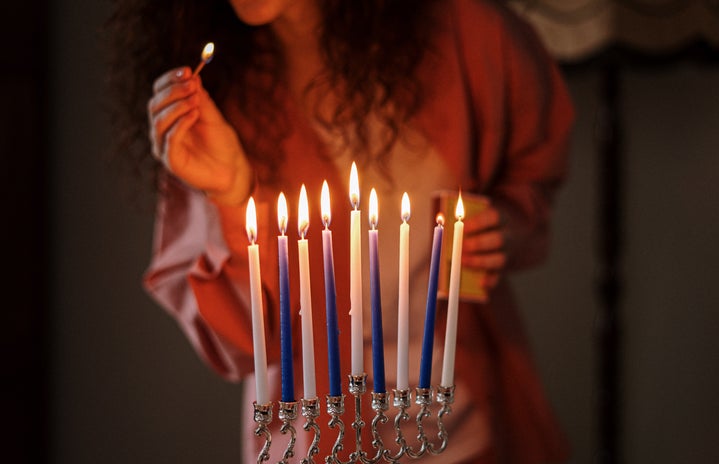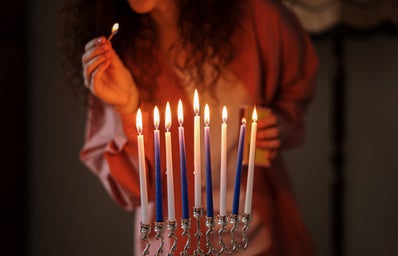“I want to be included in this, I want to be included in the holiday season,” said Sacha Feierman, a third-year Jewish student on the “alienation” they experience around the holidays regarding the recognition of Hanukkah in the United States. While Sacha and Molly Edlein both acknowledged, the representation of Jewish holidays has improved since the start of the century, it’s still severely lacking. “I would like to see enough Passover foods to supply the whole Jewish community, not just a quarter of the community,” said Sacha. “I just think that representation for any Jewish holidays is lacking.”
Hanukkah (also spelled as ‘Chanukah’), is the “Festival of Lights” in the Jewish faith. Observed for eight days and nights, it celebrates the rededication of the Second Temple in Jerusalem after the city was retaken during the Maccabean Revolt In the 2nd century BCE.
While Hanukkah has become the most well-known Jewish holiday in the U.S., Molly pointed out that it’s not one of the most significant holidays of the year, despite what many people may think. In fact, the High Holy Days of the faith are Rosh Hashannah and Yom Kippur, both of which often pass unacknowledged every year.
“I would much rather people spend their time learning about other aspects of our traditions,” said Molly, “things that are so much more crucial to our experience.” Sacha agreed. “Representation for any Jewish holiday is really lacking, for Rosh Hashannah and Yom Kippur we don’t have class off,” they said, “It just feels very performative.”
Both went on to clarify that there is a difference between appropriation and appreciation. A greater representation and recognition of Jewish holidays and culture should not be inherently linked to an appropriation of language, traditions, and sometimes a blatant capitalization of stereotypes. For years big retailers have been selling “Hanukkah” apparel and decorations with “culturally inappropriate or misinformed” slogans, according to an article from the Jewish Telegraphic Agency. These attempts are all performative, putting on an appearance of acceptance and “wokeness” without actually putting in the effort of learning and listening to the Jewish community.
This trend extends beyond stores, and some students feel that Agnes Scott has been performative in their solidarity as well. “We have a Hanukkah-themed Christmas tree, but then we don’t have Hanukkah posted on the CSI calendar, but Advent is on there,” said Molly, “that’s what makes our Jewish students feel unincluded.”
Sacha agreed, pointing out that while Agnes Scott is not as affiliated with its Christian roots as it once was, many holiday decorations are still very Christmas-centric. “Why can’t we have something more secular?” they asked.
Many Jewish students, Molly said, feel that they are not included in the campus community and that their traditions are not appreciated in the same ways the Christian ones are. So, what steps can Agnes Scott take to make Jewish students feel more included and appreciated?
“I have one word for you,” said Sacha, “Communication.”
“Talk to us,” agreed Molly, “Just talk to your Jewish students. We’re here, we’re available, we’re sources of knowledge of our own religion.”
There are a variety of ways Agnes Scott can do this, going beyond Hanukkah. Molly suggested revising the education around Judaism and Jewish Holidays, having deadline forgiveness or closing the school on Holidays of Obligation, and having day-to-day access to Kosher foods for students. Molly also noted that it goes beyond Jewish students, but the school being genuine in its commitment to students of all faiths.
“There is no reason that Jewish students should be having the way they observe their religion to come here,” said Molly.

